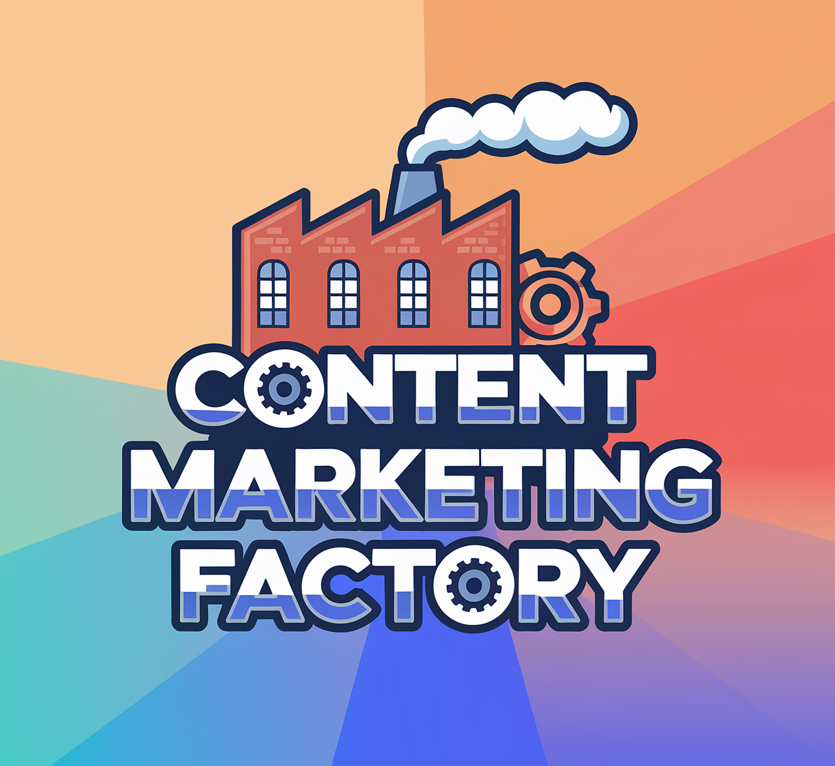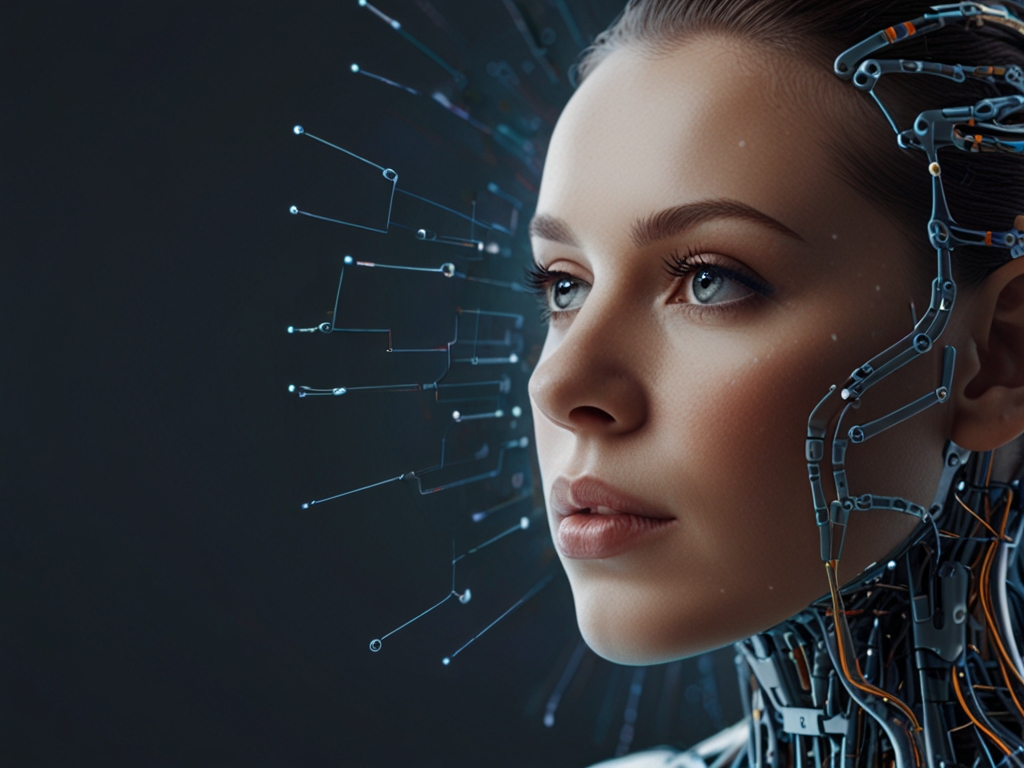According to a recent study by Salesforce, 51% of marketers are already using AI in their work, while another 27% plan to incorporate it in the near future. This trend reflects a significant shift in the marketing landscape as professionals increasingly recognize the potential of AI technologies to enhance their strategies and workflows.
Key Insights from the Salesforce Study
- Current Adoption: The study indicates that over half of marketers are actively utilizing AI tools, underscoring a growing acceptance of technology in marketing practices.
- Future Intentions: With 27% of marketers planning to adopt AI soon, nearly 78% of marketers could be leveraging AI capabilities in their operations, indicating a robust trend towards integration.
- Common Applications: Marketers primarily use AI for tasks such as content creation (76%), writing copy (76%), and analyzing market data (63%). This demonstrates how AI is being harnessed to streamline processes and enhance creativity.
This rapid adoption is driven by the tangible benefits AI brings to the table:
- Increased productivity and efficiency
- Enhanced personalization capabilities
- Improved content quality and relevance
- Data-driven decision making
- Scalable content creation and distribution
As we delve deeper into the specifics, you’ll see how these benefits are reshaping the content marketing landscape and opening up new possibilities for brands and marketers alike.
Key AI Technologies Shaping Content Marketing
To truly understand the impact of AI on content marketing, we need to familiarize ourselves with the core technologies driving this revolution. Here’s a breakdown of the most influential AI technologies in our field:
| Technology | Description | Applications in Content Marketing |
|---|---|---|
| Natural Language Processing (NLP) | Enables machines to understand, interpret, and generate human language | Content creation, chatbots, sentiment analysis |
| Machine Learning (ML) | Algorithms that improve automatically through experience | Content personalization, predictive analytics |
| Computer Vision | AI’s ability to interpret and understand visual information | Image and video content analysis, visual content creation |
| Deep Learning | Advanced neural networks that mimic human brain function | Content generation, complex pattern recognition |
| Predictive Analytics | Use of data, statistical algorithms, and ML techniques to identify future outcomes | Content performance prediction, audience behavior forecasting |
Each of these technologies plays a crucial role in enhancing various aspects of content marketing. As we explore their applications in subsequent sections, you’ll gain a deeper appreciation for how they’re reshaping our industry.
AI-Powered Content Creation
One of the most exciting developments I’ve witnessed in recent years is the rise of AI-powered content creation tools. These sophisticated systems are capable of generating human-like text, from short-form social media posts to long-form articles and even video scripts.
When I first encountered AI writing tools, I was skeptical. Could a machine really capture the nuance and creativity required for compelling content? To my surprise, the answer was a resounding yes – with some caveats, of course.
Today, I regularly use AI to assist with various aspects of content creation:
- Generating content ideas and outlines
- Drafting initial versions of articles and blog posts
- Creating variations of headlines and meta descriptions for A/B testing
- Producing product descriptions at scale
- Translating content into multiple languages
While AI-generated content still requires human oversight and editing, it has significantly boosted my productivity and allowed me to focus on higher-level strategy and creativity.
However, it’s crucial to remember that AI is a tool, not a replacement for human creativity and expertise. The most successful content marketers will be those who learn to collaborate effectively with AI, leveraging its strengths while infusing their own unique insights and brand voice.
Skyrocket Your Website Traffic:
AI-Powered Content Marketing Mastery
Learn how I grew my blog to 15,000+ monthly visitors using AI-powered content strategies. Join my 1:1 coaching program to build your content empire in just 5-8 weeks.

Personalization at Scale
In my early days of content marketing, personalization was a luxury reserved for only the most resource-rich brands. Today, thanks to AI, it’s becoming the norm rather than the exception.
AI-driven personalization allows us to tailor content to individual users based on a wide range of factors, including:
- Demographics
- Behavioral data
- Purchase history
- Content preferences
- Device usage
- Location
- Time of day
The result? More relevant, engaging content that resonates with each user on a personal level. I’ve seen firsthand how this level of personalization can dramatically improve key metrics like click-through rates, time on site, and conversion rates.
One particularly powerful application of AI in personalization is dynamic content optimization. This involves using machine learning algorithms to automatically test and optimize different content variations in real time, ensuring that each user sees the most effective version for their specific profile.
As AI continues to evolve, we can expect even more sophisticated personalization capabilities, potentially reaching a point where each user’s content experience is entirely unique and tailored to their individual needs and preferences.
AI-Driven Content Distribution
Creating great content is only half the battle – getting it in front of the right audience at the right time is equally crucial. This is where AI-driven content distribution comes into play, and it’s an area where I’ve seen remarkable improvements in recent years.
AI algorithms can analyze vast amounts of data to determine:
- The optimal channels for distributing specific pieces of content
- The best times to post on different platforms
- The most effective content formats for each channel and audience segment
- Predictive modeling of content performance across various distribution channels
By leveraging these insights, we can ensure that our content reaches its intended audience with maximum impact. I’ve personally seen engagement rates increase by over 50% simply by optimizing distribution strategies based on AI-generated recommendations.
Moreover, AI is enabling more sophisticated approaches to paid content promotion. Machine learning algorithms can continuously optimize ad targeting, bidding strategies, and creative elements to maximize ROI on content promotion campaigns.
Analytics and Performance Optimization
As a data-driven marketer, I’ve always been passionate about measuring and optimizing content performance. AI has taken this to a whole new level, providing us with deeper insights and more actionable recommendations than ever before.
Some of the ways AI is revolutionizing content analytics include:
- Advanced sentiment analysis: Going beyond basic metrics to understand the emotional impact of our content on audiences.
- Predictive analytics: Forecasting the potential performance of content before it’s even published, allowing for preemptive optimization.
- Attribution modeling: More accurately tracking the impact of content across complex, multi-touch customer journeys.
- Real-time optimization: Continuously adjusting content elements (headlines, images, CTAs) based on performance data.
- Competitive analysis: Automatically monitoring and analyzing competitor content strategies to identify opportunities and threats.
These AI-powered analytics capabilities allow us to make more informed decisions, allocate resources more effectively, and continuously improve our content marketing ROI.
Skyrocket Your Website Traffic:
AI-Powered Content Marketing Mastery
Learn how I grew my blog to 15,000+ monthly visitors using AI-powered content strategies. Join my 1:1 coaching program to build your content empire in just 5-8 weeks.

Ethical Considerations and Challenges
As we embrace the power of AI in content marketing, it’s crucial to address the ethical considerations and challenges that come with this technology. Throughout my career, I’ve always strived to maintain the highest ethical standards, and the rise of AI has introduced new complexities to navigate.
Some key ethical considerations include:
- Transparency: Being open about the use of AI in content creation and distribution.
- Privacy: Ensuring responsible use of user data for personalization and targeting.
- Bias: Addressing potential biases in AI algorithms that could lead to unfair or discriminatory content practices.
- Job displacement: Considering the impact of AI on content marketing roles and skills.
- Authenticity: Maintaining genuine human connections in an increasingly AI-driven landscape.
As content marketers, it’s our responsibility to use AI ethically and responsibly. This means not only adhering to legal requirements but also considering the broader implications of our AI-powered strategies on society and individuals.
The Future of Content Marketers
As AI continues to reshape our industry, many content marketers worry about job security. Will AI eventually replace human content creators entirely? Based on my experience and observations, the answer is a resounding no. However, the role of content marketers will undoubtedly evolve.
In the AI-driven future, successful content marketers will need to:
- Develop AI literacy: Understanding how AI works and how to leverage it effectively will be crucial.
- Focus on strategy and creativity: While AI can handle many tactical tasks, human expertise will be essential for high-level strategy and creative direction.
- Embrace data analysis: The ability to interpret and act on AI-generated insights will be more important than ever.
- Cultivate emotional intelligence: As AI handles more routine tasks, human skills like empathy and emotional storytelling will become increasingly valuable.
- Become ethical AI advocates: Ensuring responsible and ethical use of AI in content marketing will be a key responsibility.
The future of content marketing isn’t about humans versus AI – it’s about humans and AI working together to create more impactful, engaging, and valuable content experiences.
Conclusion
As we stand on the cusp of a new era in content marketing, the possibilities are both exhilarating and daunting. AI is not just changing the tools we use; it’s fundamentally reshaping how we approach content strategy, creation, distribution, and analysis.
Throughout my career, I’ve learned that the key to success in this ever-evolving field is adaptability. Those who embrace AI, learn to work alongside it, and use it to augment their human creativity and expertise will thrive in the content marketing landscape of tomorrow.
As we move forward, let’s approach AI with a spirit of curiosity, innovation, and responsibility. The future of content marketing is bright, and I, for one, can’t wait to see what we’ll create together – humans and machines, in harmony.
TL;DR
AI is revolutionizing content marketing by enhancing content creation, enabling personalization at scale, optimizing distribution, and providing deeper analytics.
Key technologies include NLP, machine learning, and predictive analytics.
While AI offers numerous benefits, it also raises ethical considerations.
The future of content marketing will involve a symbiotic relationship between human creativity and AI capabilities, with successful marketers adapting to leverage AI effectively while focusing on strategy, creativity, and ethical implementation.
Q&A
- Q: Will AI completely replace human content creators? A: No, AI will not completely replace human content creators. While AI can assist with many aspects of content creation, human creativity, strategic thinking, and emotional intelligence remain crucial for developing truly compelling and resonant content.
- Q: How can small businesses leverage AI in their content marketing efforts? A: Small businesses can leverage AI through affordable tools for content ideation, basic content generation, social media scheduling, and analytics. Many AI-powered marketing platforms offer tiered pricing suitable for smaller budgets.
- Q: What skills should content marketers develop to stay relevant in an AI-driven landscape? A: Content marketers should focus on developing AI literacy, data analysis skills, strategic thinking, creativity, emotional intelligence, and ethical AI implementation to stay relevant and valuable in an AI-driven landscape.
- Q: How does AI impact content personalization? A: AI enables personalization at scale by analyzing vast amounts of user data to tailor content based on individual preferences, behaviors, and contexts. This leads to more relevant and engaging content experiences for each user.
- Q: What are the main ethical concerns surrounding AI in content marketing? A: The main ethical concerns include transparency about AI use, responsible data handling and privacy protection, addressing algorithmic bias, considering the impact on jobs, and maintaining authenticity in brand-consumer relationships.
Quiz: Test Your Knowledge
- Which of the following is NOT a key AI technology shaping content marketing? a) Natural Language Processing b) Machine Learning c) Blockchain d) Computer Vision
- What percentage of marketers are already using AI, according to the Salesforce study mentioned? a) 27% b) 51% c) 78% d) 35%
- True or False: AI-powered content creation tools can completely replace human content creators.
- Which of the following is an application of AI in content distribution? a) Determining optimal posting times b) Choosing the best distribution channels c) Predicting content performance d) All of the above
- What is one way content marketers can prepare for an AI-driven future? a) Ignore AI developments b) Focus solely on technical skills c) Develop AI literacy and focus on strategy d) Replace all human-created content with AI-generated content
Answers:
- c) Blockchain
- b) 51%
- False
- d) All of the above
- c) Develop AI literacy and focus on strategy
Scoring Interpretation:
- 5 correct: AI Content Marketing Guru! You’re well-prepared for the future of content marketing.
- 3-4 correct: AI Savvy! You have a good grasp of AI in content marketing but could benefit from deeper exploration of certain areas.
- 1-2 correct: AI Novice. Consider diving deeper into the topic to stay competitive in the evolving content marketing landscape.
- 0 correct: Time to start your AI journey! Revisit the article and focus on understanding the key concepts of AI in content marketing.



